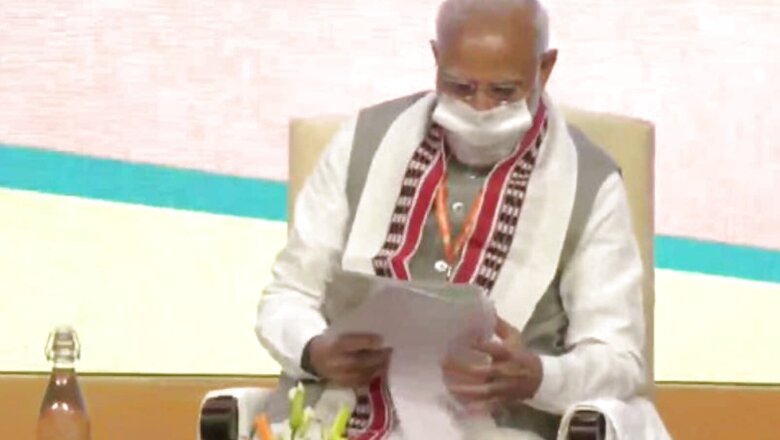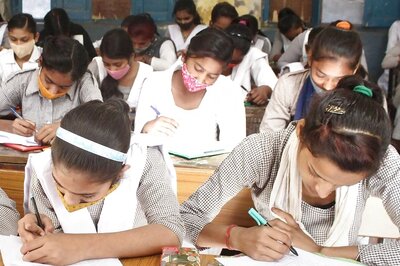
views
Prime Minister Narendra Modi has concluded five ‘Chintan Shivirs’ with his Union Council of Ministers. The sessions lasted for more than four hours during which the ministers gave presentations and the PM deliberated on several issues.
As many as 77 ministers were divided into eight groups with one of them chosen as the coordinator for each, sources said. The meeting was termed ‘Chintan Shivar’, a contemplation session for overall improvement in efficiency and governance. A total of five such sessions were held — one each on Personal Efficiency, Focused Implementation, Ministry Functioning and Stakeholder Engagement, Party Coordination and Effective Communication and the last one was on Parliamentary practices.
In the first session, Union ministers Dharmendra Pradhan and Mansukh Mandaviya gave presentations on individual efficiency. The second was led by Piyush Goyal and Gajendra Shekhawat.
Other ministers who gave presentations were Hardeep Singh Puri (functioning and stakeholder engagement), Anurag Singh Thakur (party coordination and effective communication), and Pralhad Joshi (parliamentary practices).
In the last meeting, Lok Sabha Speaker Om Birla and Rajya Sabha Chairman M Venkaiah Naidu were also invited as special guests. All these meetings primarily focused on improving the efficiency and the delivery system of the Modi government. The forming of groups is another step in that direction, broadly focusing on overall improvement in the governance by making ministers more hands-on approach.
While Smriti Irani headed the group that would give information of all ministries, Mandaviya would focus on the office monitoring systems and Hardeep Puri would lead the one on learnings.
Anurag Singh Thakur has been entrusted with leading the group that would review others’ work. Several other groups have been created to be headed by Piyush Goyal, Dharmendra Pradhan, Narendra Singh Tomar and Pralhad Joshi.
Developing a portal in each minister’s office that gives updates on the performance of the Centre’s flagship schemes and policies, a dashboard for monitoring decisions made by the respective ministers and a system to schedule meetings and managing correspondence are among the tasks assigned to these groups.
They have also been asked to create profiles of all districts, states and ministries and develop stakeholder engagement programmes. One of the groups has been assigned to set up a mechanism for creating a team of at least three young professionals with command over research, communication and other key areas.
The Modi government wants to move forward pushing the policy of ‘Sabka Saath Sabka Vikas Sabka Vishwas’ further.
These meetings hold importance for the ministers who were brought into the government after the Cabinet rejig. In the last monsoon session of Parliament, PM Modi had asked the first-time ministers to spend time in the Rajya Sabha and learn debates.
The prime minister has often instructed his cabinet colleagues to focus on the job at hand rather than focusing on speaking to the media.
(With PTI inputs)
Read all the Latest Politics News here


















Comments
0 comment